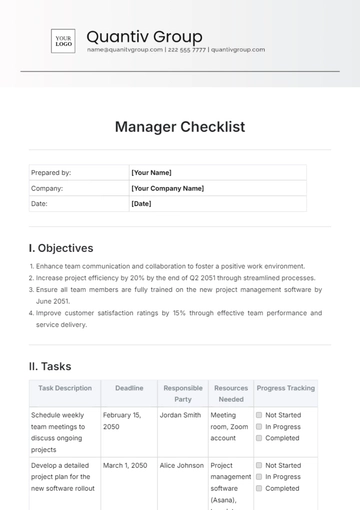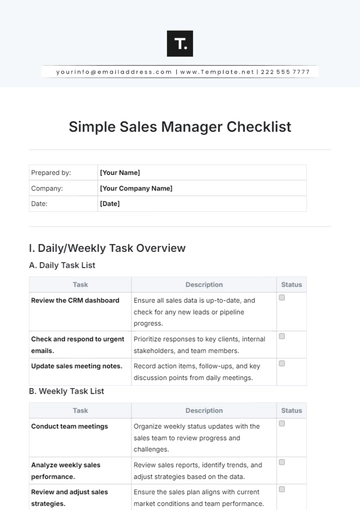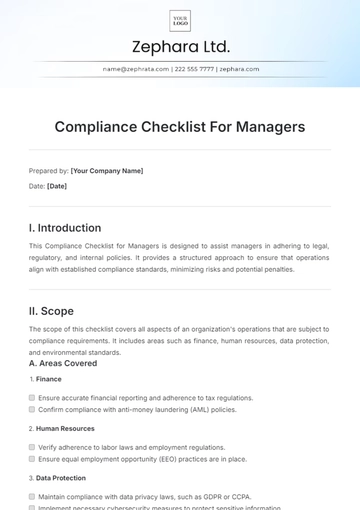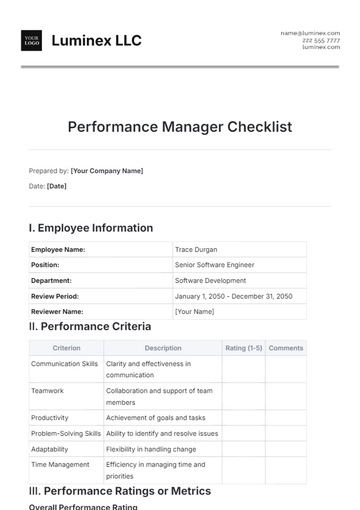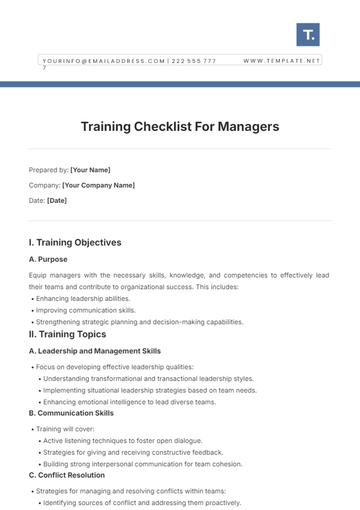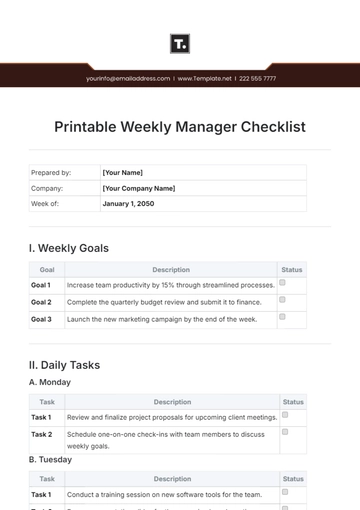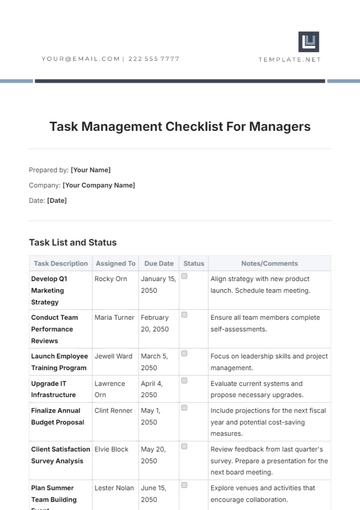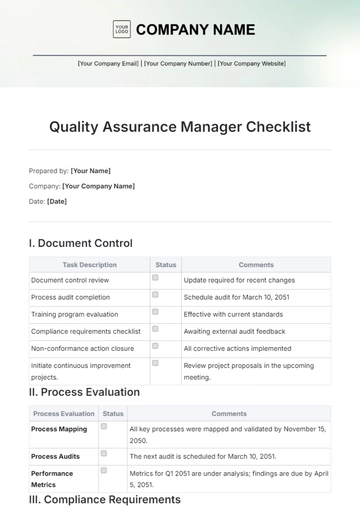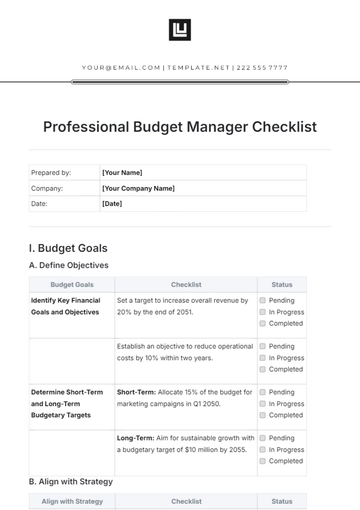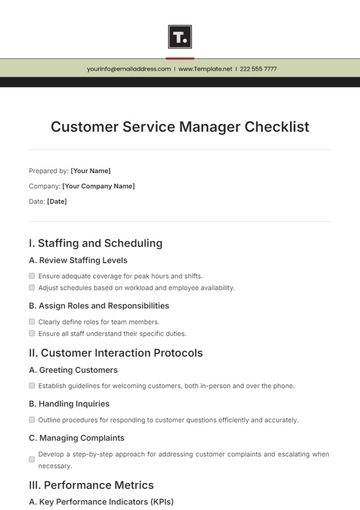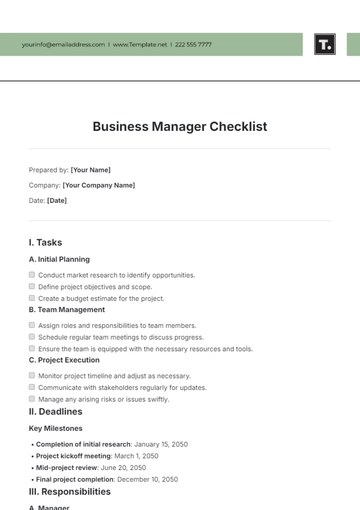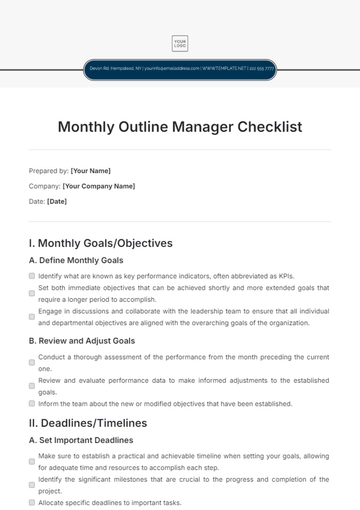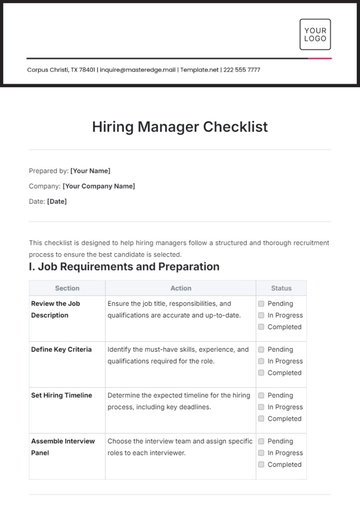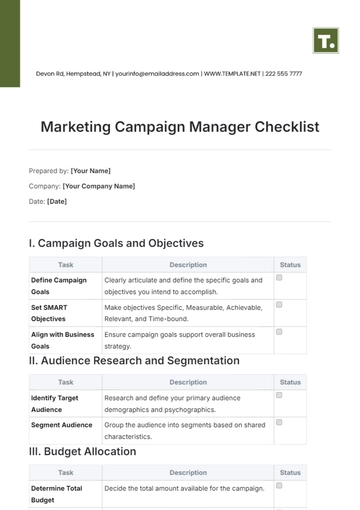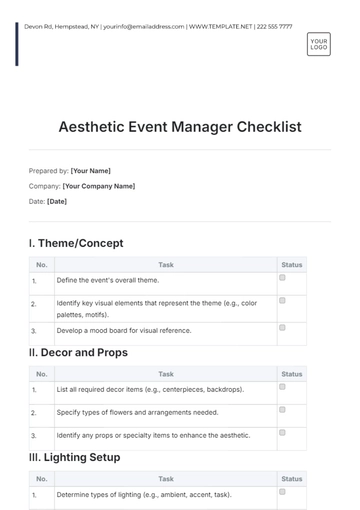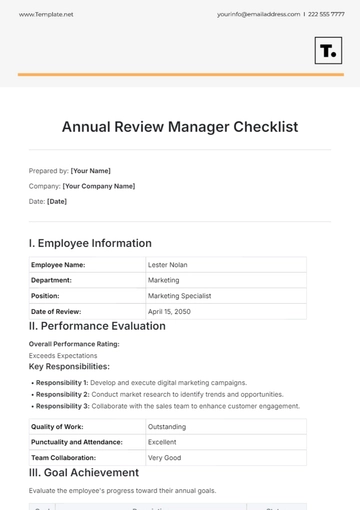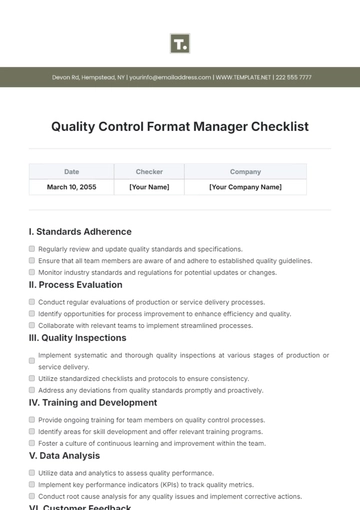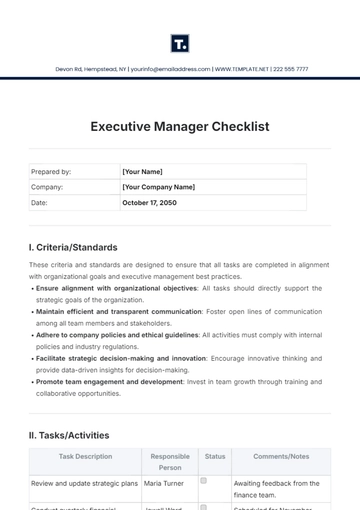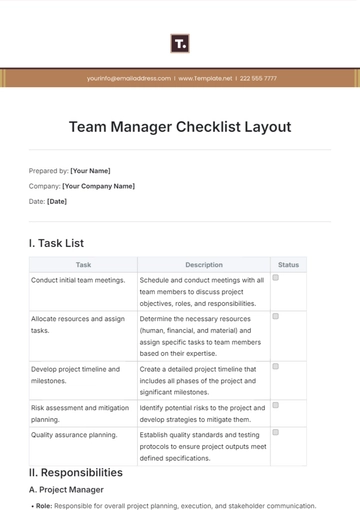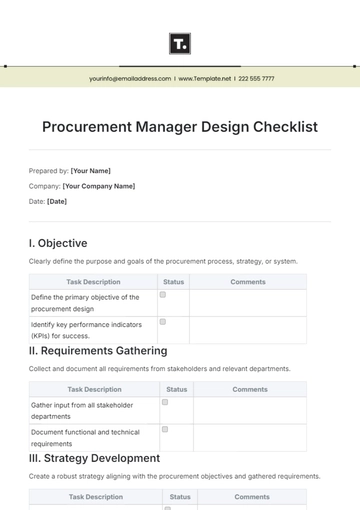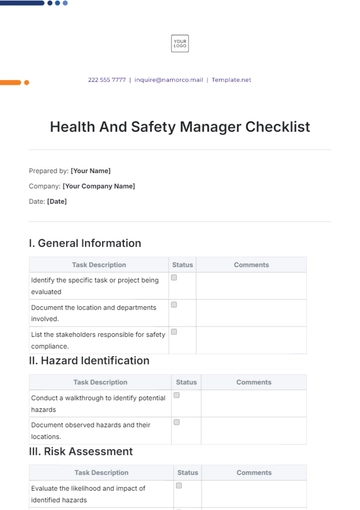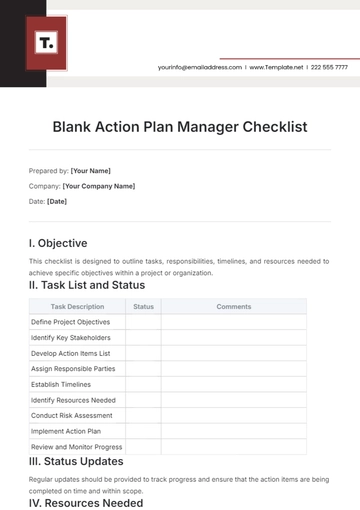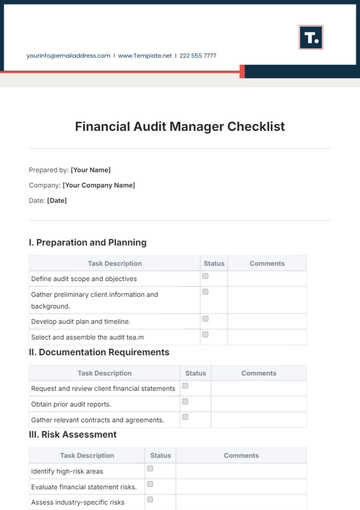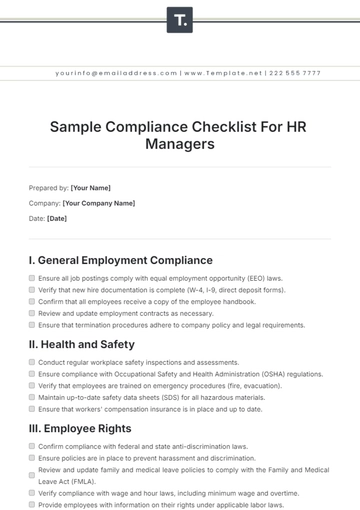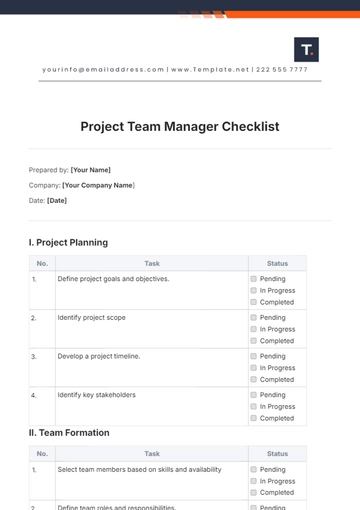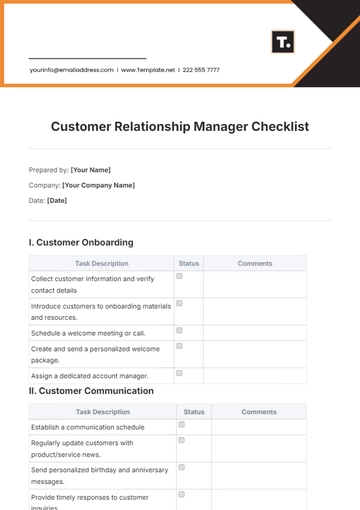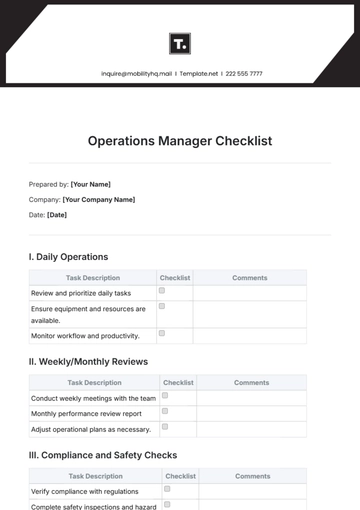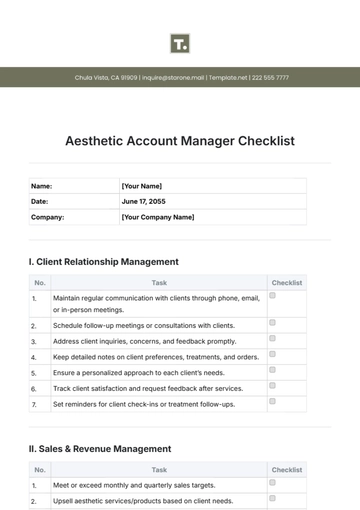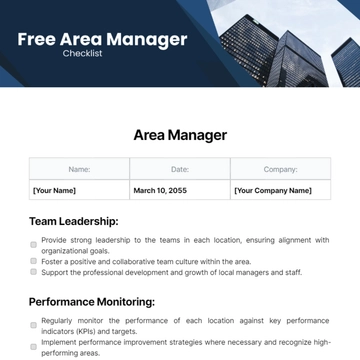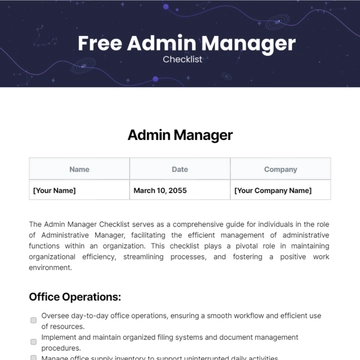Free Executive Assistant Manager Checklist
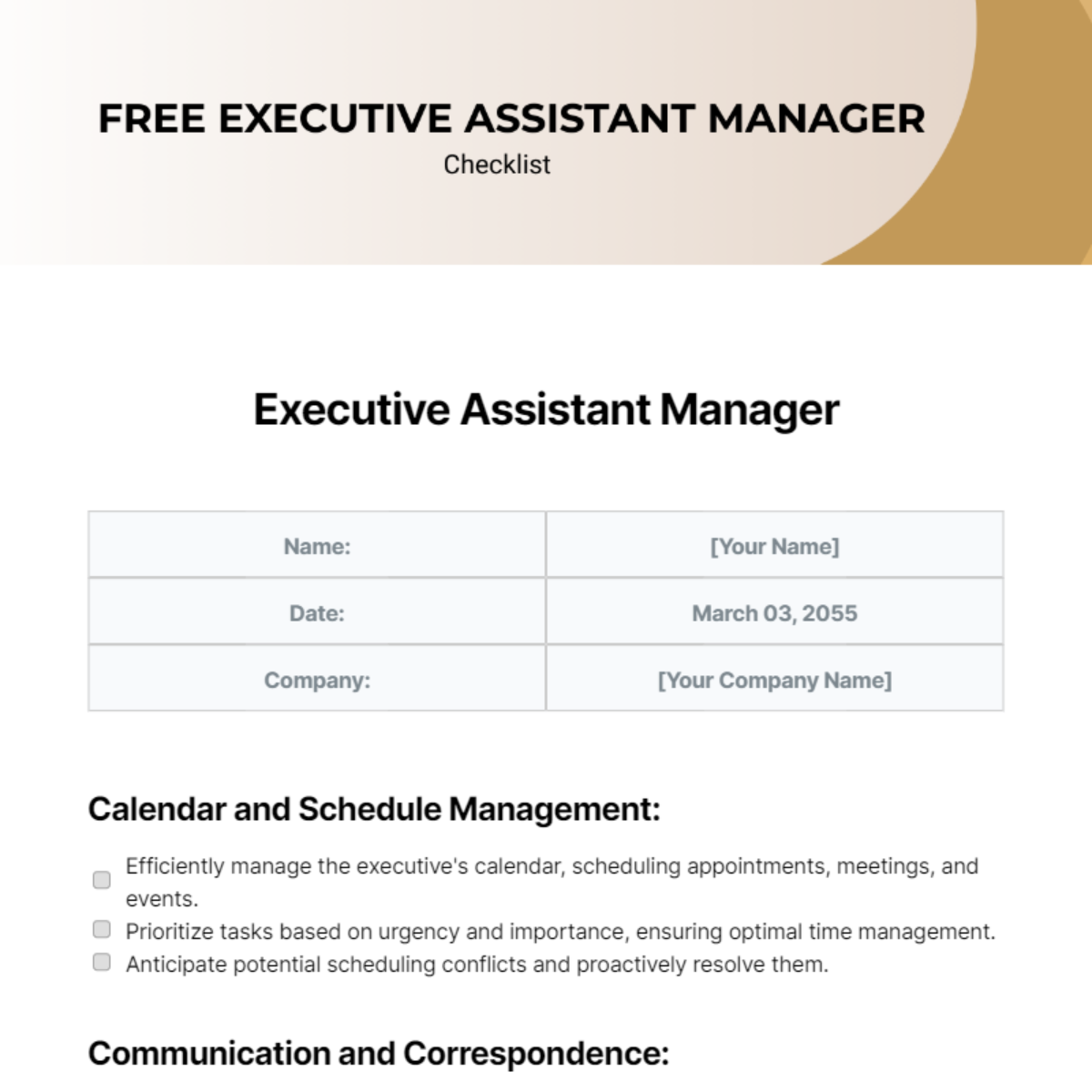
Name: | [Your Name] |
|---|---|
Date: | March 03, 2055 |
Company: | [Your Company Name] |
Calendar and Schedule Management:
Efficiently manage the executive's calendar, scheduling appointments, meetings, and events.
Prioritize tasks based on urgency and importance, ensuring optimal time management.
Anticipate potential scheduling conflicts and proactively resolve them.
Communication and Correspondence:
Facilitate effective communication between the executive and internal/external stakeholders.
Draft, edit, and proofread correspondence, emails, and reports on behalf of the executive.
Manage incoming communications, categorizing and prioritizing messages for prompt attention.
Meeting Coordination:
Coordinate and organize meetings, including logistics, agendas, and necessary materials.
Ensure that meeting venues are set up appropriately, and technical requirements are met.
Record meeting minutes and follow up on action items to ensure completion.
Travel Arrangements:
Plan and coordinate travel arrangements, including flights, accommodations, and transportation.
Anticipate and address any potential travel-related issues or changes.
Provide the executive with a detailed itinerary and essential travel information.
Information Management:
Organize and maintain files, documents, and records to ensure easy accessibility.
Manage databases and information systems, keeping them up to date.
Implement efficient information retrieval systems to enhance productivity.
Project Coordination:
Assist in the coordination and management of projects led by the executive team.
Collaborate with project stakeholders to ensure timelines and objectives are met.
Monitor project progress and provide regular updates to the executive.
Confidentiality and Discretion:
Exercise the utmost discretion and maintain confidentiality regarding sensitive information.
Handle confidential documents and discussions with professionalism and integrity.
Establish protocols to safeguard sensitive data and information.
Team Collaboration:
Foster positive collaboration within the executive team and across departments.
Act as a liaison between the executive and other team members, facilitating effective communication.
Encourage a supportive and collaborative work environment.
Budget Monitoring:
Assist in monitoring and managing budgets, tracking expenses, and reconciling financial reports.
Identify cost-saving opportunities and propose strategies for budget optimization.
Communicate effectively with the finance department to ensure financial goals are met.
Problem-Solving:
Proactively identify potential issues or challenges and propose solutions.
Address day-to-day operational challenges promptly and effectively.
Collaborate with the executive team to find strategic solutions to complex problems.
Professional Development:
Stay informed about industry trends, best practices, and executive management techniques.
Pursue professional development opportunities to enhance skills and knowledge.
Provide recommendations for training or workshops that could benefit the executive team.
Event Planning and Execution:
Plan and execute corporate events, conferences, and executive retreats.
Coordinate logistics, manage invitations, and ensure a seamless event experience.
Evaluate the success of events and gather feedback for future improvements.
- 100% Customizable, free editor
- Access 1 Million+ Templates, photo’s & graphics
- Download or share as a template
- Click and replace photos, graphics, text, backgrounds
- Resize, crop, AI write & more
- Access advanced editor
Enhance executive assistance with the Executive Assistant Manager Checklist from Template.net. This editable and customizable template, effortlessly tailored with our Ai Editor Tool, ensures a personalized and efficient managerial support routine. Elevate the assistant manager's experience with this user-friendly checklist, designed for maximum efficiency. Customize effortlessly, ensuring comprehensive task management and successful executive support with ease and precision.
You may also like
- Cleaning Checklist
- Daily Checklist
- Travel Checklist
- Self Care Checklist
- Risk Assessment Checklist
- Onboarding Checklist
- Quality Checklist
- Compliance Checklist
- Audit Checklist
- Registry Checklist
- HR Checklist
- Restaurant Checklist
- Checklist Layout
- Creative Checklist
- Sales Checklist
- Construction Checklist
- Task Checklist
- Professional Checklist
- Hotel Checklist
- Employee Checklist
- Moving Checklist
- Marketing Checklist
- Accounting Checklist
- Camping Checklist
- Packing Checklist
- Real Estate Checklist
- Cleaning Checklist Service
- New Employee Checklist
- Food Checklist
- Home Inspection Checklist
- Advertising Checklist
- Event Checklist
- SEO Checklist
- Assessment Checklist
- Inspection Checklist
- Baby Registry Checklist
- Induction Checklist
- Employee Training Checklist
- Medical Checklist
- Safety Checklist
- Site Checklist
- Job Checklist
- Service Checklist
- Nanny Checklist
- Building Checklist
- Work Checklist
- Office Checklist
- Training Checklist
- Website Checklist
- IT and Software Checklist
- Performance Checklist
- Project Checklist
- Startup Checklist
- Education Checklist
- Home Checklist
- School Checklist
- Maintenance Checklist
- Planning Checklist
- Manager Checklist
- Wedding Checklist
- Vehicle Checklist
- Travel Agency Checklist
- Vehicle Inspection Checklist
- Interior Design Checklist
- Backpacking Checklist
- Business Checklist
- Legal Checklist
- Nursing Home Checklist
- Weekly Checklist
- Recruitment Checklist
- Salon Checklist
- Baby Checklist
- Equipment Checklist
- Trade Show Checklist
- Party Checklist
- Hospital Bag Checklist
- Evaluation Checklist
- Agency Checklist
- First Apartment Checklist
- Hiring Checklist
- Opening Checklist
- Small Business Checklist
- Rental Checklist
- College Dorm Checklist
- New Puppy Checklist
- University Checklist
- Building Maintenance Checklist
- Work From Home Checklist
- Student Checklist
- Application Checklist
